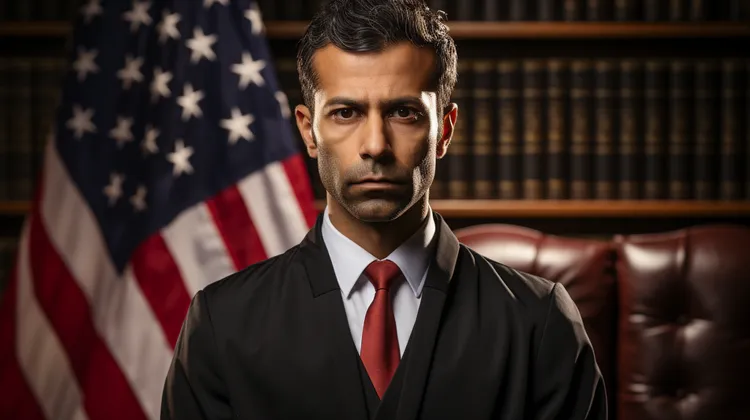
OneCoin’s Legal Head Guilty of Fraud, Laundering
In the burgeoning world of cryptocurrencies, the line between innovative finance and illicit operation can sometimes become blurred. The recent case of OneCoin, a company that positioned itself as a cryptocurrency juggernaut, serves as a sobering reminder of this divide. The saga reached a new chapter when OneCoin’s legal chief entered a guilty plea to charges of wire fraud and money laundering, pulling back the curtain on a multi-billion dollar global scam.
OneCoin emerged onto the scene in 2014, proclaiming to be the next big cryptocurrency. Founded by Ruja Ignatova and Sebastian Greenwood, it was poised to take on the likes of Bitcoin by offering an allegedly superior blockchain technology. The company quickly gained prominence through aggressive marketing campaigns and a multi-level marketing structure that promised lucrative returns for investors and members who recruited others into the fold.
The company’s legal chief, whose identity was often shrouded in mystery to protect the supposed legitimacy of OneCoin, was eventually revealed to be a critical piece in the OneCoin puzzle, navigating the stormy legal waters the company faced. As governments and financial regulators began scrutinizing OneCoin’s operations, the legal chief’s role became even more pivotal.
Charges were brought against OneCoin and several of its high-ranking officials as evidence began to mount, suggesting that it was not a genuine cryptocurrency operation but rather a pyramid scheme. OneCoin had no real blockchain technology, and its value was not determined by market supply and demand but was instead artificially inflated by the company’s leaders.
The attorney was accused of several crimes, including conspiracy to commit wire fraud and conspiracy to commit money laundering. The wire fraud charges stemmed from the company’s operation, which involved selling fraudulent cryptocurrency packages to hapless investors around the world. The money laundering charges were connected to the vast sums of money that OneCoin took in, which needed to be funneled through various bank accounts and shell companies to give the appearance of legitimacy and to evade law enforcement agencies.
After a period of denial and avoidance, eventually, the legal chief conceded to the charges and entered a plea of guilty in a federal court. This admission of guilt was a significant turning point in the OneCoin case, providing authorities with insider knowledge on how the elaborate scam was orchestrated and operated.
The guilty plea not only opened the door for prosecutors to delve deeper into the OneCoin conspiracy but also underscored the vastness of the fraud. OneCoin had operated in numerous countries, with estimated revenues of over $4 billion from a scheme that spanned continents and impacted countless individuals.
The plea deal struck by the legal chief included cooperating with prosecutors, which may lead to more charges against other OneCoin associates. The potential sentencing, as consequence of the plea, involves a significant amount of jail time, reflecting the gravity of the crimes committed.
The startling truths revealed through the legal chief’s plea also serve as a cautionary tale for investors and regulators alike. The meteoric rise and crash of OneCoin highlight the need for vigilance in an industry where unscrupulous operators may seek to exploit the allure of quick riches promised by emerging technologies such as cryptocurrencies.
Investors who were swayed by the promise of high returns in a new market were left in shambles, many having poured their life savings into OneCoin. The devastating financial impact on these individuals has led to international calls for better regulation and oversight of cryptocurrency markets.
The implications of the legal chief’s plea extend beyond the courtroom. They invoke a discussion about the responsibilities of legal professionals in the crypto industry and the ethical considerations when representing companies in this space. Lawyers play a vital role in ensuring that companies adhere to the laws, and when they become complicit in criminal activities, they undermine the integrity of the entire legal system.
The collapse of OneCoin and the guilty plea of its legal chief also compel regulators worldwide to take a more proactive stance in monitoring cryptocurrency ventures. While the innovation in this field should be encouraged, it must be balanced with consumer protection and measures to prevent financial crimes.
The legal chief’s guilty plea is more than just a milestone in the prosecution of the OneCoin scam. It’s a profound narrative on the limits of legality, the dangers of unchecked greed, and the reckoning that inevitably follows massive financial deceit. As the story of OneCoin continues to unfold, it provides lessons for investors, legal professionals, and regulators, urging a closer examination of the cryptocurrency landscape and reinforcing the need for a more secure and trustworthy financial future for everyone.